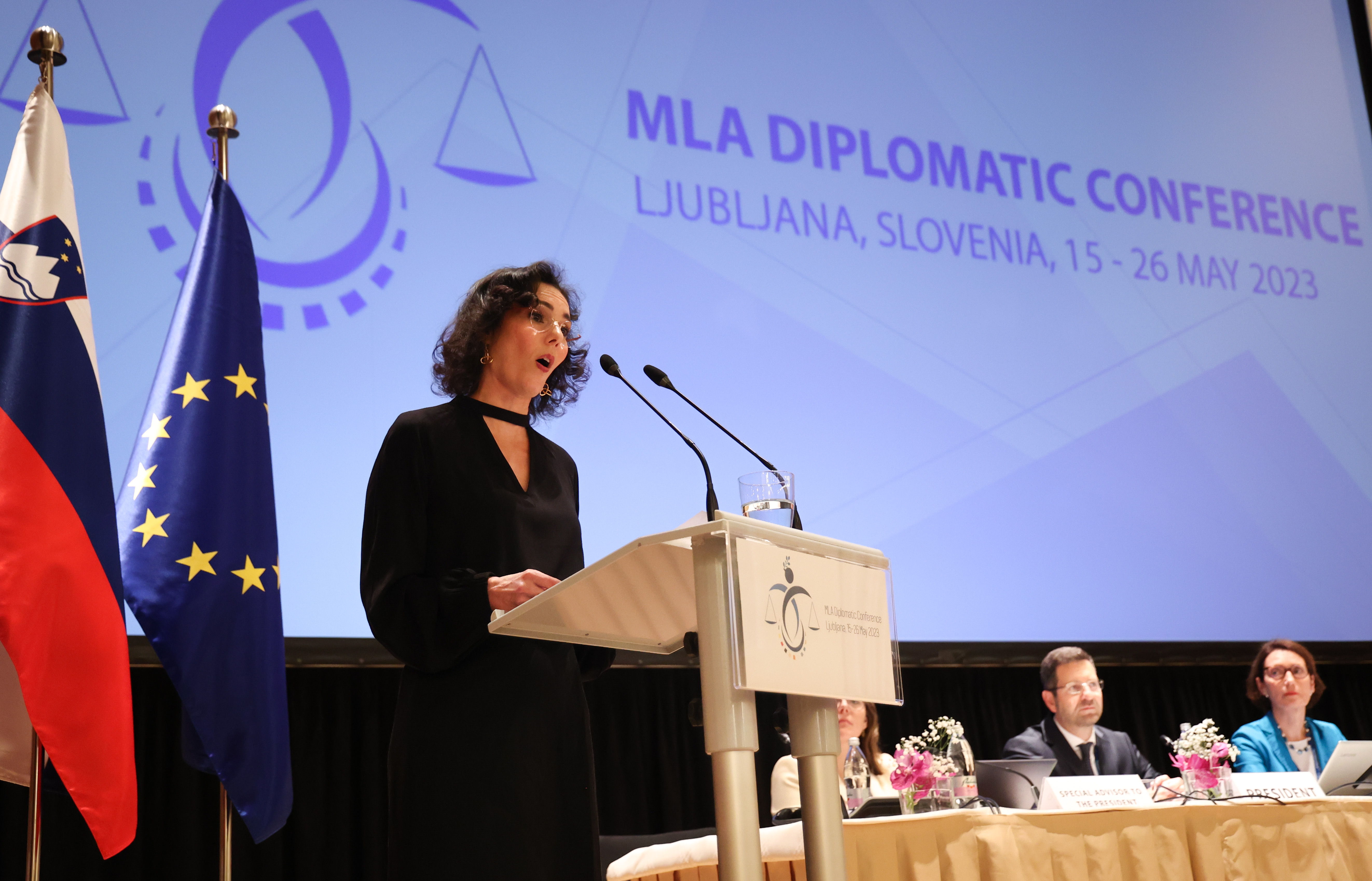New convention on prosecution of international crimes under negotiation

The international diplomatic conference that should lead to a new convention to combat genocide, crimes against humanity and war crimes opened on Monday in the Slovenian capital, Ljubljana. Belgian Foreign minister Hadja Lahbib (MR) delivered the opening speech.
The purpose of the Mutual Legal Assistance and Extradition Convention (MLA) is to facilitate international cooperation on genocide, crimes against humanity and war crimes. It also aims to enhance the application of the Rome Statute and facilitate the often arduous prosecution process at the International Criminal Court (ICC) in The Hague.
"Genocide, war crimes, crimes against humanity and other international crimes cannot go unpunished"
In her speech, Lahbib stressed the importance of such collaboration. "Genocide, war crimes, crimes against humanity and other international crimes cannot go unpunished," she said. "They must be investigated and the perpetrators prosecuted (...) to send a strong message to the entire international community: these crimes will never be tolerated."
"The treaty is essential to bring the perpetrators to justice"
Diplomats from the countries involved will continue to work on the treaty over the next two weeks. If everything goes well, it will be signed on 26 May. The text could potentially play a role in the ICC's investigation into war crimes in Ukraine. "The treaty is essential to bring the perpetrators to justice," Dutch Justice minister Dilan Yesilgöz-Zegerius said on Monday.
The MLA is an initiative of Belgium, the Netherlands and Slovenia, which launched the project in 2011. Mongolia, Senegal and Argentina have since joined. Today, 80 countries support the initiative, including Ukraine. Russia, China and Syria do not support it.
© BELGA PHOTO VIRGINIE LEFOUR